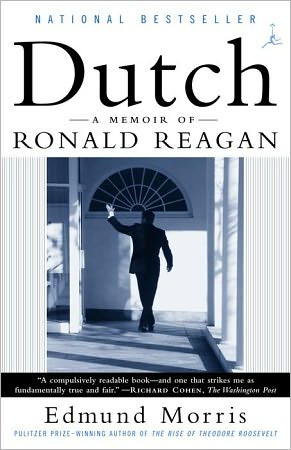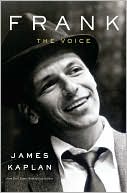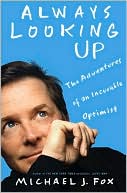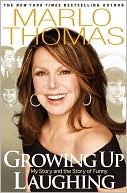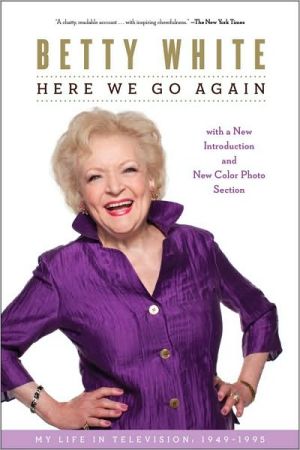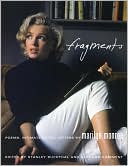Dutch: A Memoir of Ronald Reagan
The only biography ever authorized by a sitting President—yet written with complete interpretive freedom—Dutch is as revolutionary in method as it is formidable in scholarship. Thirteen years of exhaustive research in the archives of Washington and Hollywood, and thousands of hours of interviews with the President and his family, friends, allies, and enemies, equipped Morris with an unmatched knowledge of one of the twentieth century's greatest leaders. This monumental work offers the most...
Search in google:
Edmund Morris has been absorbed in Ronald Reagan's life for the last thirteen years, with unparalleled access to his papers, his friends, and his family. This book will inform, engross and even astionish those who believe they already know Ronald Reagan -- as well as those who do not know him at all. New York Times - Maureen Dowd It was very rich to hear the same Reagan aides who used to have to defend the Reagan figments expressing outrage over the Morris figments.
"For heaven's sakes!"\ He holds the speckled leaf in his hand, caressing its green patches with his sharp, scarred thumb. The Oval Office is so silent I hope that the dry whisper of that caress will register on my tape recorder. "Direct from Lowell Park," I say. "Remember that big oak tree you used to sit under, when you were a lifeguard?"\ He tilts his head at me, mildly amused but wary. Most public yet most private of men, he does not welcome undue familiarity with his past. I have never forgotten the blue anger that came into his eyes (no aquamarine flash like Jimmy Carter's, but a sort of dark flicker, like the inner flame of a candle) when I boasted that I had tracked down his first fiancée. "Oh, you found out about her, huh." It was a statement rather than a question—Ronald Reagan hardly ever used the interrogative form—signaling, for all its tone of polite interest, his resentment at being surprised, and his disinclination to hear another word about the preacher's daughter he once wanted to marry.\ I should have kept my research to myself. Yet for sheer pleasure at having tracked down former intimates, I could never resist beginning an interview with, "Guess what—Glen Claussen's still alive. He gave me this photograph of you singing barbershop quartet!" or, "Joy Hodges says, 'Love to Dutch.' " I would pause for a reaction, but—unless you call a practiced chuckle reactive—always in vain. Perhaps his youthful readings in Calvin Coolidge taught him not to encourage interlocutors. It only winds them up for twenty minutes more. Even as a teenager, he had taken no personal interest in people. They were, and remained, a faceless audience to his perpetual performance.\ Of course, if I said something like, "Mr. President, your old friend Pee Wee seems to be dying," he would bow his head in appropriate sorrow—checking, meanwhile, the schedule lying crisp before him:\ 1:30 pm Personal Staff Time\ 2:00 pm Pre-News Conference Briefing\ 3:30 pm Taping Session\ Perhaps because today's show-and-tell has vegetal rather than human associations, his moment of wariness passes. "That was in front of the little bath house," he says, speaking more to the leaf than to me. He is back under his favorite oak, sixty summers ago, his hot damp swimsuit unlooped from his shoulders and dropped to his taut stomach, leaving behind a pale ghost of itself. The river has "closed" for lunch, and he is eating a hamburger and reading Edgar Rice Burroughs. At about the age of one thousand years, they go voluntarily upon their last strange pilgrimage down the river Iss, which leads no living Martian knows whither and from whose bosom no Martian has ever returned.\ That hard, splendid body, those bruising arms and knees, the prickle of wet wool are so manifest that I can feel them—as one skinny-dipper did on August 2, 1928, in the nocturnal rescue that gave "Dutch" Reagan his first newspaper headline. pulled from the jaws of death. A sudden empathy with the drowning boy (who gave his name as James Raider) makes me want to retch, as if the Rock River's brackish waters are in my nose and throat, and my consciousness, too, swirling.\ "Mr. President, when you—"I am in such a frenzy that I have forgotten he is still addressing himself to the leaf. Our voices collide; his soft husk arrests my stammer. "There was a walkway," Reagan says. "And then a square on the end with a slide on it, and a diving board, and uh, a low-level thing along one side. . . ." He glances at me smiling, head cocked. The gray-blue eyes go from gloss to semigloss, and he returns the leaf. "Well, I'll be darned." We are back in the present.\ I know now I'll never tell him. No wonder Ronald Reagan embraced the Strategic Defense Initiative—cosmic deflection is his game! Research memo: look for the notion of a space-shield in Burroughs science fiction. Doesn't Princess of Mars have a dome of bombproof glass, five feet thick?\ Half an hour later, I emerge from the Oval Office, asking myself for the hundredth time, "How much does Dutch really know?"\ *******\ There was no sign of recognition when I first saw him in the White House, at a state dinner in August 1981. Nor did he know me (although he pretended to) when I sat next to him fourteen months later, at a lunch with members of the Theodore Roosevelt Association. He again showed no sign of familiarity on Saint Valentine's Day 1983, when Senator Mark Hatfield invited a group of biographers to dine with the Reagans in Georgetown. I was not surprised. The President met an average of eighty people a day; he must long since have stopped relating handshakes to faces.\ He certainly lit up, though, when Hatfield introduced me as the author of The Rise of Theodore Roosevelt. "Oh!" he breathed, warmly resting his left hand on my right hand engulfed in his other hand, "I read that. And Nancy was reading your wife's book about, uh—""Edith Kermit Roosevelt, sir."\ "Yes. Those first few months in the White House, we would lay in bed and read 'em side by side!" He waited for me to express appreciation, then winked and turned to Frank Freidel. Happiness suffused my heart.\ I watched Frank melting under similar treatment, then Daniel J. Boorstin and George Nash and the rest of our company. The President had a perfectly prepared quip for each man, a beam of sexless affection for each woman. We were all seduced, with the exception of Arthur S. Link, Ph.D., George Harding Davis '86 Professor of American History at Princeton University. Reagan grasped his disapproving Democratic hand. "Well, hello—" Link bent stiffly forward, craggy and crabbed, bowed by the erudition of forty-two consecutive volumes of The Papers of Woodrow Wilson. His detestation of the Gipper was legendary in academe. Some of us had taken bets that Arthur would not show up. But show he had, in the teeth of a snowstorm, out of courtesy to Senator Hatfield.\ For a moment, his silver crew cut bristled inches from Reagan's chin. I braced for an upward jerk and thud. But then he straightened and tried to smile—a mirthless iguana gape. Reagan, nodding kindly, moved on to the butler.\ Something about the back of the President's neck, as he ordered a vodka and orange, told me he sensed Link's stiffness, and was figuring how to deal with it. He had been the same at college, at Warner Bros., in the Army, on the road for GE in the Fifties: always the Actor, determined at all costs to captivate every person in the room. Compared with some of the more formidable dyspeptics he had beguiled—Eamon De Valera, Charles de Gaulle, and Chiang Kai-shek, to name but three—Link was easy meat.\ It took him no more than twenty minutes, once we had sat down at Mrs. Hatfield's round table, ornamented with bulbous red plastic hearts. I noticed he kept beaming at Arthur. Rubicund from his cocktail, big, broad, lustrous with power, he exuded what Walter Pater called the "charm of an exquisite character, felt in some way to be inseparable from his person." The iguana began to cackle in spite of itself at the flow of his jokes. Who could help laugh, when Reagan himself laughed so irresistibly?\ Arthur, being something of an expert on sequitur, must have noticed how each joke adapted to the conversation, how quickly and lightly the words spooled out, every punch line dropping like a fly on the stream. Joke-telling requires a special kind of intelligence, as anyone knows who has tried to write one out: a few syllables too many, a vital phrase misstated, and the humor dies. Reagan lacked wit—he was too cautious to risk repartee—and many of his jokes were hoary, but one could only marvel at their apparent spontaneity.\ He grew serious when the conversation turned to a President's responsibility to endow posterity with personal documents. Whatever we recommended for the record, he said, he would do faithfully. But he doubted that details about himself as a man would interest anybody, now or in the future. "I still look over my shoulder when I'm, you know, walking out of the White House and the Marines are saluting and all, and I say, 'Who—me?' "\ This was too much for Arthur, who by now was gazing at Reagan misty-eyed. "Mr. President!" he roared, almost sobbing with adoration. "Six hundred years from now, historians will still be fascinated by your manuscripts!" (I had a vision of scholarly lasers, programmed for Freudian clues, scanning Dutch's diaries without so much as a beep.) Arthur, rambling on, would not be stopped until he had begged the President and Mrs. Reagan to preserve their billets-doux. "Imagine what would have happened if Mrs. Wilson had burned those wonderful love letters Woodrow wrote her. How little we would know of his passionate humanity!"\ There was nothing to do but let rapture run its course. Reagan sat listening, content at having prevailed once again over a potential enemy. The rest of us twirled our wineglasses and wondered what kind of ideological hangover Arthur was going to have in the morning.\ Throughout the seventy minutes we stayed at the table, I was aware of Mrs. Reagan's stare, as a scuba diver in dark water senses two large, pale, accompanying jellyfish. I braced myself to glance at her: she gave a thin return of smile before looking away.\ "And then along came Nancy Davis," said Reagan, "and saved my soul."\ He was talking about 1949, his annus horribilis, when in the space of a few months he had found himself alone, aging, divorced, unemployed, upstaged in his last picture, and on crutches, nursing a shattered leg. There was a respectful silence while he gazed at his savior. Her eyes glittered with tears, perfectly on cue.\ Hokey, yes, but I could not help being moved. The President's adoration of this brittle little woman warmed the room to such an extent that Mrs. Hatfield, draining her champagne, launched into a monologue on the subject of Love that had us all checking our watches. Only Reagan, with his bear's appetite for honeyed sentiment, seemed sorry when her speech, and with it the evening, came to an end.\ *******\ "I'm going to ask only one favor from you scholars in exchange for this dinner," Senator Hatfield said after the Reagans had left. "Each of you must send me an account of what you've heard and seen tonight."\ I wrote some pages from an imaginary History of the United States in the Late Twentieth Century. Its general tone was whimsical, aside from this mention of a proposal by the Librarian of Congress:\ . . . that Reagan appoint to his staff a historian trained to sense the long-term significance of events. Presidents, Dr. Boorstin remarked, are often unaware that their most cherished "achievements" might be judged insignificant by posterity, while others, hardly noticed at the time, blossom later to major importance. If the drama of the moment—a gala for the doomed Sadat, a visit to the Berlin Wall—can be captured by an official photographer, then why not also by an official chronicler? "As Chairman of the Senate Appropriations Committee," Hatfield interrupted with a grin, "I'll see you get the necessary funds."\ After quoting Arthur Link's outburst about the "passionate humanity" of Woodrow Wilson, I concluded:\ Implicit in that remark was the suggestion that Reagan's own humanity, unchronicled, might fade faster than any other feature of his Presidency; that in the end what chiefly survives, or should survive, of any Chief Executive is the quality of his personality. Presidents, whatever their political symbolism, represent the national character of their era, and if we do not understand our leaders as people, we can never understand ourselves as Americans.\ It was not until some time afterward that I learned that the real purpose of the Hatfield dinner had been to set me up as Reagan's "chronicler." So that was why Mrs. Reagan had stared so hard over her volaille de poulet aux champignons. That was why Richard Darman, the Administration's resident intellectual, had invited me to the White House for a follow-up discussion. Presumably, I was expected to offer my pen to the Reagan Revolution.\ I didn't. I was at work on another volume of the life of Theodore Roosevelt, and had reason enough to keep my distance. Ironia ironorum, that I of all people should be charged with rescuing the old Lifeguard from the chill current of history!\ *******\ Nine years later, however, I found myself literally escorting him back to his origins in Tampico, Illinois. He was President no longer, and had been seized by a sudden, senescent desire to visit, for the first time since 1911, what was now grandly called the Ronald Reagan Birthplace Museum. I walked down Main Street with him and Nancy, feeling transcendentally strange. An odd, Dantesque reversal of roles had occurred, as if I were now the leader rather than the led.\ "Mr. President," I said, "you don't have to pretend you remember this place. You were only three months old when your parents checked out of number 111."\ "Yes. We went to live over the store where my father worked. H. C. Pitney's General Store."\ "No, that was in 1919, when you returned here from Monmouth. In May 1911, the Tampico Tornado reported that your parents had moved with their new baby to the Burden house, south of the depot."\ I pointed down the one-block street, beyond the little crowd restrained by a police car, and across the tracks. "You can't see it because of the wheat elevator, but it's the house of your first memories."\ "Are we going to visit?"\ "I think they want us to go to church first, sir, and then go through the museum here."\ Docile as ever, he nodded. I did not add that the current occupants of the white, double-story house had no desire to welcome him. Judging by the number of major appliances on the stoop, they were not Reagan Republicans.\ Sunday-morning sunbeams streamed through the windows of the Christian Church. He sat immediately in front of me while the organ fluted "What a Friend We Have in Jesus," and Whiteside County's Disciples of Christ—a corn-fed lot—squeezed themselves into adjoining pews. I leaned forward and said, "Just think, Mr. President, if your father had gotten you baptized in Saint Mary's, we'd be attending eleven o'clock mass."\ He chuckled and whispered conspiratorially, "Bells and smells."\ We sang number 270 in the hymnal. It occurred to me that I had never heard him sing, apart from his execrable rendering of "They Fly Through the Air with the Greatest of Ease" in International Squadron (1942). So I leaned forward and was surprised by the sweetness of his breathy light baritone. Unlike most public worshipers, he sang without a trace of self-consciousness, quietly, almost to himself.\ There is a place of full release A place full of joy and peace . . .\ As so often before, I marveled at the dense lie of his hair, thick and shining as an otter's. Why is it old men and small boys always look so vulnerable from behind? Today, he seemed to belong to both categories. There was something engagingly innocent about the way he clutched his wife's hand throughout the prayers and sermon, and about his glance at her for approval when the preacher asked him to speak. Innocent, yet also strange: I had not seen him so dependent before. For the first time, I wondered if there was something wrong with him.\ He spoke well enough, in his patented hesitant husk: "My brother and I were started off in the Christian Church by our mother, here in Tampico. I'm afraid I can't . . . uh, tell if this was the same building we—"\ I nodded violently at him, over Nancy's coiffure, but he did not see me.\ "Reason is, that was about seventy years ago. But I can't describe the feeling of being back here in my birthplace. Really, there are no words."\ These were his standard clichés to express emotion required of him, but I looked around and saw many eyes fill with tears. Reagan checked too: the old actor counting the house. Satisfied, he ambled back to his pew, and we sang "That Old Rugged Cross."\ *******\ After the service, we adjourned to the Birthplace, which was cordoned off for privacy. A voluble and energetic little lady led the returning pilgrim upstairs. I crowded close behind, not wanting to miss a moment of this récherche du temps perdu.\ Only when it happened—a door thrown open, a threshold crossed, two windows full of sun, and then another, darker threshold—did I realize that none of us had anticipated its impact. "This, Mr. President," the little lady said, pointing matter-of-factly at a bed, "is where you were born."\ Sixty years of public life had taught Ronald Reagan how to react. But these words were so sudden, the room so small, and the bed in its cramped corner so lumpishly there, that if a reproduction of Courbet's Origin of the World had hung over the headboard, he could not have been more shocked. I heard him suck in his breath. He swiveled on his heel, almost treading me down, and began to tell jokes.\ *******\ Later, over lunch at the "Dutch Diner" down the street (named, oddly enough, not after Ronald Reagan, but after the Mennonite women who run it), a delayed reaction set in. He showed no interest in what I tried to tell him about the events of eighty years ago in Tampico. Instead, he took refuge in his own stories about Hollywood, stories we had all heard a hundred times, except now he left out whole sections without noticing, while Nancy picked at her salad, her face a mask.\ Listening to him, I asked myself who of us, forced so brutally to confront the nothingness from which we have sprung, would not have turned away as he did, knowing it to be indistinguishable from—indeed, identical with—the nothingness that looms ahead?
Publisher's NotevProloguexxi1The Land of Lost Things32The Rainbow on the Roof113A Dark Form Half Hidden in the Snow244A World Elsewhere445Chimes at Midnight646Air and Water767The Indifferent Figure in the Sand: A Review928Long Blue Shadows1089Inside Story13310Love Is on the Air14411On the Beach with Ronnie and Jane15012A Lonely Impulse of Delight16813The End of the Beginning18014Celluloid Commandos19615The Regeneration of the World21816Star Power: A Dialogue23517Down the Divide: Four Short Scenarios24918Red or Palest Pink: A Letter26019This Dismal Wilderness263Intermission20And Then Along Came Nancy27721The Unexplored Mystery of Ploughed Ground28422Remember Old Ma Reagan: A Studio Interview, 195429823Ladies and Gentlemen of the California Fertilizer Association: A Speech30224Dark Days31125Reagan Country34526A Sixty-Year-Old Smiling Public Man36627The Ripple Effect38628I, Ronald Wilson Reagan41029Back into the Iron Vest43430Huge Cloudy Symbols of a High Romance46931Physicians of Memory50832Almost Air Force One54033One on One55034Explosions57635The Beginning of the End58936Album Leaves, 1987-198861737The Shining City641Epilogue655Appendix673Acknowledgements675Bibliography679Notes683Illustrations839Index843
\ From Barnes & NobleThe Barnes & Noble Review\ Ronald Reagan has long inspired heated opinions: His defenders think him among the greatest of presidents (Could there really have been — and not so long ago — a movement to add his image to Mount Rushmore?), and his detractors rate him among the worst.\ He was a man who relied on a sort of national nostalgia; he often spoke of how things once were (or, perhaps more accurately, how he would have had us believe they once were), evoking a simpler, more innocent time that never really existed. The stories he shared in an effort to embed those memories in our collective consciousness often as not were pure fabrications. But Ronald Reagan never let such details prevent him from weaving his web of assurance and inspiration, and the greater majority of Americans readily followed him down the primrose path.\ And yet, claims Edmund Morris in his controversial new biography, DUTCH: A MEMOIR OF RONALD REAGAN, Reagan was "unjustly acccused of living in the past. Few Presidents have been as forward-looking."\ And that's just one of many contradictions Morris offers us. Although Reagan went years without uttering the word AIDS and even suggested, in 1987, that the virus was a plague brought against sodomizers by an angry God, Morris insists that he was adamantly opposed to discrimination against homosexuals. And though he was beloved by the Christian Right, Reagan was neither a successful family man nor a particularly devoted churchgoer. In the 1950s, he was so active sexually that Morris claims he once woke up beside a young woman he was unable to evenidentify— hardly the lovable, old-fashioned grandfatherly figure he was thought to be by many, if not most, Americans.\ And yet, despite these and many other inconsistencies, Morris is of the opinion that Reagan was a great president, that he restored America's sense of national pride, that he brought about the collapse of the Eastern bloc and the Soviet Union, in particular.\ So readers of every political disposition will find much to agree and disagree with, but it is not the book's evenhandedness, or lack thereof, that is sparking controversy. Rather it is Morris's decision to insert into his telling of Reagan's story a fictional character who is present for and narrates the book's action. It's an unorthodox approach that blurs the line between the once clearly delineated genres of biography and fiction.\ DUTCH is a book that will likely inspire discussion and debate for weeks and even months, but its greatest impact may well be on the very art of biography itself.\ \ \ \ \ \ Christopher BuckleyCalm down and read the book. \ — Washington Post\ \ \ Christopher Lehmann-HauptMorris' inventions lend at least the first half of Dutch a faint air of make-believe, which seems entirely fitting for Reagan's rise to prominence....One might of course dismiss Morris' technique as committing the fallacy of imitative form, matching an artificial narrative with an inauthentic subject. But some would argue that Reagan's rise to fame was the contradiction of that fallacy....Couldn't all this have been accomplished without Morris' narrative abracadabra? Perhaps, but I can think of few conventional political biographies that bring their subjects' pasts so richly alive. \ — New York Times\ \ \ \ \ Wall Street JournalEver since the New York Times last week broke its word to Random House by reporting, on its front page, the old news that author Edmund Morris had made himself a character in Dutch: A Memoir of Ronald Reagan, his forthcoming biography of the former president, the book has been widely lambasted and Mr. Morris made the butt of jokes and criticism...Mr. Morris's [book] may be good, or not. But that judgment should be made after reading the entire book, not before.\ \ \ \ \ Terry GolwayThree-hundred thousand copies of Dutch will land on bookshelves beginning Sept. 30. The debate will rage on, and very likely will overshadow Mr. Morris’ considerable literary achievement. For he has, in an important way, told us the most essential truth about Ronald Reagan.\ Just check the footnotes.\ — New York Observer\ \ \ \ \ \ Maureen DowdIt was very rich to hear the same Reagan aides who used to have to defend the Reagan figments expressing outrage over the Morris figments. \ — New York Times\ \ \ \ \ Craig OffmanOn Sept. 22, New York Times Op-Ed columnist Maureen Dowd mercilessly mocked Edmund Morris' new Dutch: A Memoir of Ronald Reagan. Dowd took the author to task for fictionalizing himself as a character with privileged access to, basically, every important event in Reagan's life. As far as she was concerned, Morris had become "Edmund Gump, historian," a biographer who "has himself become a creature of Reaganesque unreality. He has become an 'authentic phony.'"\ In the Sept. 27 Washington Post, Book World critic Jonathan Yardley ardently defended Morris, with whom, he said, he is friendly. Dowd "apparently has not read" the book, Yardley wrote, "but that did not deter her from casting vitriolic judgment on it."\ Was Yardley right to assume that Dowd hadn't read the book? Dowd's office says that Yardley never called to check his facts, but the office would not confirm that she had actually read Dutch. Yardley, however, may not have felt a need to call. "I did not say that [she had not read it] for certain," he explained in an interview this week. "I said 'apparently did not.'" What made Yardley think Dowd leaped before she looked? "It's pretty obvious from the content of her column," he said.\ In the column, however, Dowd does exhibit some intimacy with Dutch. She discusses specific events in the book -- but those, of course, she could have gotten from other biographies. She also mentions the book flap -- but that doesn't mean she's read the book. She also spills a few details about the fictionalized Morris family tree and knows exactly when Morris the character touches base with Reagan -- but these are things she could have learned from Times reporters who had read the book. In any case, as far as Yardley is concerned, Dowd went too far in attacking the real (rather than the fictional) Morris. "It was an ad hominem attack on Edmund Morris. It was a dismissal of the book in toto, without any direct exposure to it. It was a mean piece of work."\ — Salon\ \ \ \ \ \ Michael DeaverUnfortunately, Edmund has become the story here. This ought to be the story about this wonderful biography after 14 years, but the strangeness of some of the things that we hear and Edmund's own ambivalence talking about him being an airhead, on one hand, and saying he was one of the great presidents of all time—it's just strange, and I think Edmund himself is becoming the story. \ — Larry King Live\ \ \ \ \ Library JournalFew, if any, biographies in recent years have generated so much controversy about the role and responsibility of the biographer as this muddled but infuriatingly readable account. Morris received the 1980 Pulitzer Prize for The Rise of Theodore Roosevelt, and, on the strength of that impressive work, was appointed Reagan's authorized biographer in 1985. Not necessarily to his credit, Morris may have invented the genre of virtual biography, through which the author insinuates himself into Reagan's life. As readers know now, the Morris in these pages is not even the real South African-raised Morris but an older American version about the same age as Reagan. Some events, notably the death of Reagan's infant daughter; his testimony before the House Committee on Un-American Activities (HUAC) about Communist infiltration of the Screen Actors Guild; and his split with first wife Jane Wyman, are actually portrayed in play form, giving a surreal quality to these very real traumas. The reader, no matter how familiar with Reagan, will have trouble distinguishing fact from fable. Yet this work is recommended as a well-researched novel that features elegant writing, well-crafted, if caramelized anecdotes, and the skillful framing of Reagan's worldview through the mindset of the actor Reagan was always proud to be. Despite Morris's unprecedented access, Lou Cannon's President Reagan: The Role of A Lifetime (LJ 4/15/91) remains the most authoritative and historically correct account of the Reagan years. A caution for catalogers: if you classify this as nonfiction, consider adding a question mark by the Dewey number.--Karl Helicher, Upper Merion Twp. Lib., King of Prussia, PA Copyright 1999 Cahners Business Information.\ \ \ \ \ Conrad BlackMorris lurches back and forth like a metronome between acknowledging manifestations of Reagan's greatness and admitting his own inability to explain them. He is frequently nasty and sneering, even describing Reagan at one point as "an apparent airhead," but volunteers that Reagan may simply have been uninterested in revealing much of himself or even have been skillfully practicing concealment of his real motivations. \ In his desperation to get at the real Reagan, Morris devises the spurious technique of claiming to have known him for over 70 years, with the result that many pages are wasted in self-indulgent fiction about a nonexisting relationship.\ —American Spectator\ \ \
